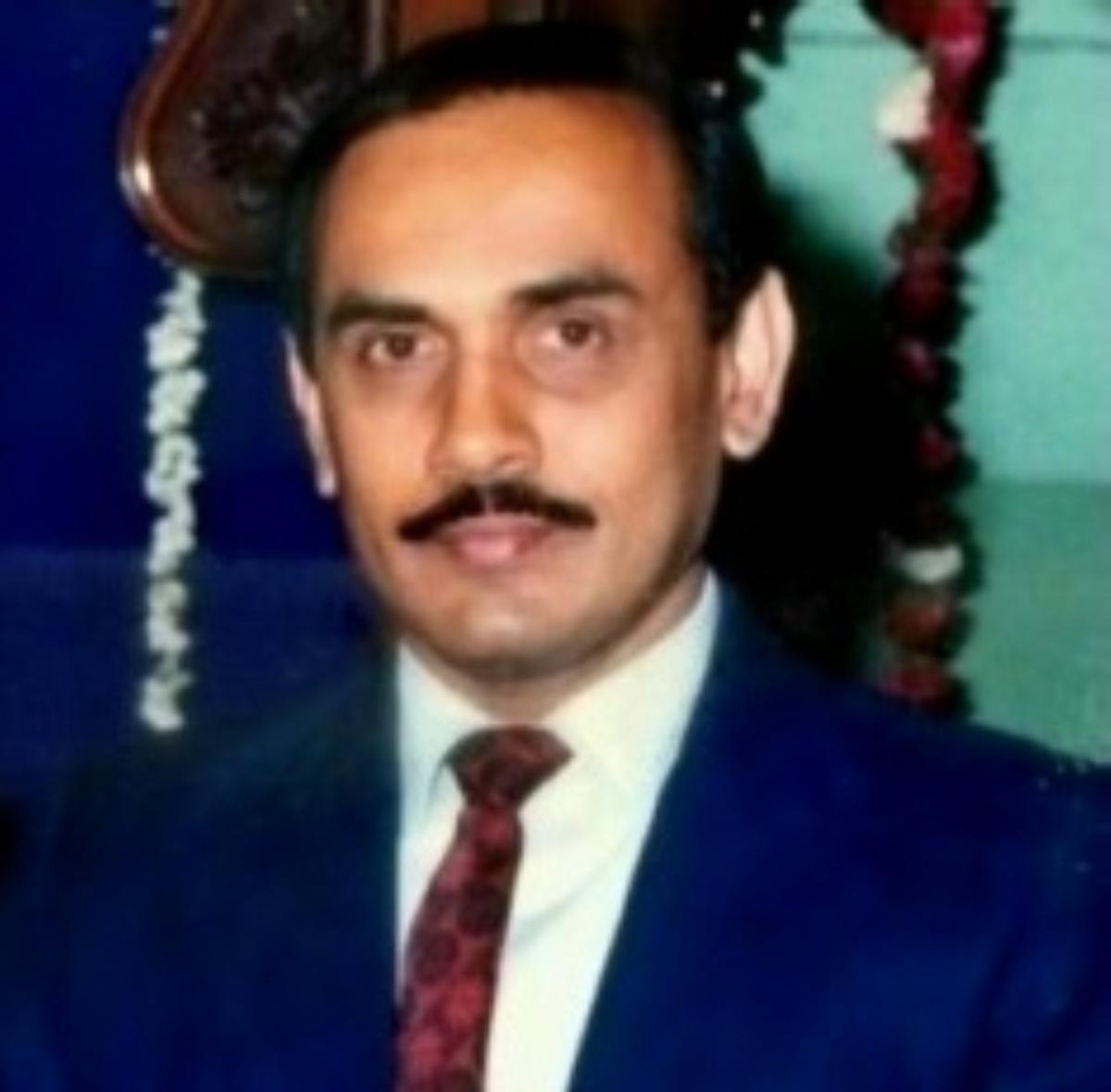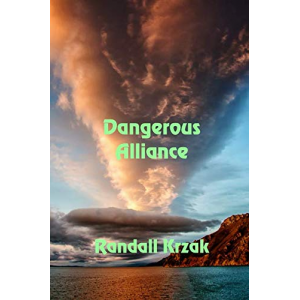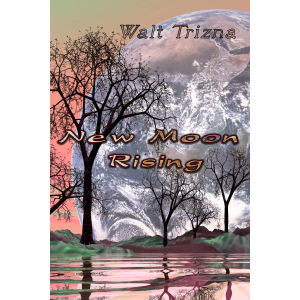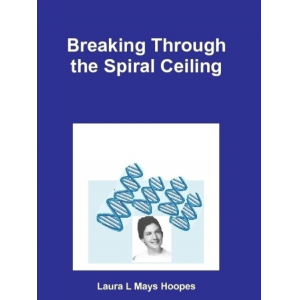- Author
- Book
- Story behind the book
- Media Links
- Reviews

PRAVEEN KUMAR
About
Praveen Kumar, a bilingual poet, born in Mangaluru on June 29 of 1949 as the eldest son of Shree R.D.Suvarna and Smt. B.Sarojini, with his more than three decades of government service as a senior police officer and as a poet of twenty-four published collections and as an author of five volumes on matters of governance and administration is a familiar face in Indian intellectual circuits. His more than 30 contributions on governance and administration to prominent national dailies like The Hindu, The Indian Express, Deccan Herald and The Times of India and other periodicals and journals were extremely popular and often sensational by their innovative unorthodox thoughts.
Praveen Kumar graduated in Science from St. Aloysius College, Mangaluru, going on to obtain post-graduate degree in Literature from Mysuru University. He also holds post-graduate diploma in Business Management as well as Higher Diploma in Cooperative Management. In his student days he was a prize-winning orator and writer. He lives in Bengaluru with his son, Pratheek Praveen Kumar and wife, Jayashree Praveen Kumar. He is a familiar face in national seminars and TV networks in India as a Poet and thinker and some of his poems have figured in school text books.
His published works include Policing for the New Age, Policing the Police, Indian Police and Inside India in prose; and Unknown Horizons, Portraits of Passion, Simply Yours, Love & Pride, Shobha Priya, Golden Wonder and Celestial Glow in poetry. His published works in Kannada are Divya Belaku, Bhavana, Priya Chaitra Tapasvini, Ananya Priya Lavanya, Priya Geethegalu and Tapasvini. Stemming from his varied academic background are the lively far-reaching interests that have impelled him to write in subjects as divers as matters of public interest and poetry that struck a perfect balance between the pursuance of vocation and avocation.
BOOKS
A) Nonfiction
1) Policing For The New Age
2) Policing The Police
3) Inside India
4) Indian Police
5) Policing The Police
Second Edition
B) English Poems
1) Unknown Horizons
2) Portraits Of Passion
3) Love & Pride
4) Simply Yours
5) Shobha Priya
6) Golden Wonder
7) Celestial Glow
C) Kannada Poems
1) Divya Belaku
2) Bhavana
3) Priya Chaitra Tapasvini
4) Priya Geethegalu
5) Ananya Priya Lavanya
6) Tapasvini
D) Poem Collections
1) Poetic Sojourn (5 Volumes)
2) Recent Poems
3) Complete Work Of English Poems
4) Complete Work Of English Love Poems
5) Book Of Poems
6) Book Of Poems Part 2
7) Book Of Love Poems
E) Kannada Poem Ebooks
1) Poems Canarese
2) Love Poems Canarese
PUBLISHED ARTICLES
A) The Hindu
1) Indian Police At A Crossroads (6-6-1995)
2) Internal Security- Challenges And Approach (8-8-1995)
3) Indian Police: Time To Take Tough Decisions (19-9-1995)
4) What Ails Professional Policing In India? (2-1-1996)
5) Need To Liberate Law Enforcers From Unholy Alliances (2-4-1996)
6) Role Of Police In The Reconstruction Of India (18-6-1996)
7) Where Their Loyalties Lie… (27-8-1996)
8) Caught In The Vicious Circle Of Corruption (15-10-1996)
9) Police Structure Needs The Management Touch (31-12-1996)
10) Police & Human Rights – Does End Justify Means? (18-3-1997)
11) Restoring Credibility To Crime Investigation (24-6-1997)
12) What Ails The Indian Secret Police (9-9-1997)
13) Police Unprofessional (20-1-1998)
14) Law And Justice (23-6-1998)
15) Police Morale Eroded By Poor Administration (8-9-1998)
16) Time To Improve The Quality Of Civil Service (2-3-1999)
Quality Of Civil Service (19-3-1999) : Letter To The Editor
As Answer To Upsc Response In The Hindu Dated 16-3-1999.
B) The Indian Express (Editorial Page)
1) Quota System Can Weaken Civil Service (6-6-1995)
2) Empowering The Cbi (10-7-1997)
C) Deccan Herald (Sunday Supplementary)
1) Towards Sane Service (2-7-1995)
2) Lacking Vigour (6-7-1997)
3) Professional Pride Of The Police (28-9-1997)
4) Need To Revitalise The Police (23-11-1997)
5) For Good Governance (11-11-2001)
D) The Times Of India
1) The Gun Still Speaks (21-10-1995)
E) Alive (Focus)
1) Crime, Politics And Police (February 1996)
2) Criminalisation Of Police (January 1997)
3) The Indian Police: Maladies And Remedies (September 1998)
4) The Crumbling Steelframe Of India (November 1998)
5) Kashmir: The Core Issue Of Nationhood (February 2002)
F) IJCC
1) Investigation Of Dowry Death Cases (1996 – 3)
2) Indian Internal Security Buildup (1998 – 4)
TV APPEARANCES
A) Interviewed
1) Sanchaya (Bangalore Dd) On 8-6-1992
2) Sanchaya (Bangalore Dd) On 22-8-1994
3) Parichaya (Udaya Tv) On 16-3-2000
B) Presenting Poems
1) Sanchaya (Bangalore Dd) On 12-9-1989
2) Kavi Sammelana (Bangalore Dd) On 17-10-1990
PRESENTING PAPERS
A) National Seminars
1) The Centre For Policy Research, New Delhi On 20-3-2002
(Indian Political Reforms-Police Administration)

Dangerous Alliance
Description
<p>United Nations’ sanctions are crippling North Korea. China has turned her back on her malevolent partner. The North Korean military machine is crumbling, unable to function. Oil reserves are minimal and the government seeks new alliances.Cargo and tourist ships are disappearing along the Somali and Kenyan coastline at an alarming rate. Speeches abound, but inaction emboldens Al-Shabab to seek their next prize: Kenya. The terror organization controls land but requires weapons.Bedlam Bravo team leader Colonel Trevor Franklin (Ret.) leads the small international team into East Africa. Tempers flare as the team is embroiled in a political quagmire. The axis must be stopped to avert an international crisis but at what cost?Proudly published by Solstice Publishing</p>
Story Behind The Book
POLICING THE POLICE on police and policing by PRAVEEN KUMAR Published by Sapna Publications, Bangalore Proposed release at Raj Bhavan by the Hon'ble Governor of Karnataka, Smt. Rama Devi on February 25, 2000 in 2000
Media Links
Reviews
<p style="color:rgb(0,0,0);font-family:'Times New Roman';font-size:medium;line-height:normal;">REVIEW BY THE HINDU</p> <p style="color:rgb(0,0,0);font-family:'Times New Roman';font-size:medium;line-height:normal;"><font size="3">POLICING THE POLICE: Praveen Kumar; Sapna Book House, Thunga Complex, Opposite Tribhuvan Theatre, Gandhinagar, Bangalore- 560009. </font><span style="color:rgb(0,0,0);font-family:'Times New Roman';font-size:medium;line-height:normal;">Rs. 175.</span></p> <p style="color:rgb(0,0,0);font-family:'Times New Roman';font-size:medium;line-height:normal;"><font size="3">A POLICE officer and a prolific writer, Praveen Kumar, has published another anthology of his articles which have already appeared in many newspapers, in the form of this book. Being a topical subject any time, "Policing the police'' acquires more relevance today in the context of the criminalisation of not just politics, but of the services as well.</font></p> <p style="color:rgb(0,0,0);font-family:'Times New Roman';font-size:medium;line-height:normal;"><font size="3">In addition to the canker of criminalisation comes the gangrene of corruption. And together, they have eroded much of the confidence and credibility that the services enjoyed in the eyes of the public a few decades ago.</font></p> <p style="color:rgb(0,0,0);font-family:'Times New Roman';font-size:medium;line-height:normal;"><font size="3">In this compendium, the author has put together a host of articles touching all these aspects - from a more general issue on challenges and approaches, to the problems of corruption in the police, the quota system, the threats to internal security from terrorist groups, social justice and the need for humanising the force.Given the continuing deterioration in standards, it will be right to say at any point of time that the police or the civil service is at a crossroads - a vital juncture when it can make or break civil society.</font></p> <p style="color:rgb(0,0,0);font-family:'Times New Roman';font-size:medium;line-height:normal;"><font size="3">The author also takes this line and shares many of his experiences in the force and in bureaucracy.</font></p> <p style="color:rgb(0,0,0);font-family:'Times New Roman';font-size:medium;line-height:normal;"><font size="3">Coming as a sequel to his earlier book Policing for the New Age, the author chooses to describe policemen as "social doctors'' and policing as a "surgical operation to systematically remove cancerous growths from the body of society''. The basic question remains - If they are themselves (police) infested, what happens to the society?</font></p> <p style="color:rgb(0,0,0);font-family:'Times New Roman';font-size:medium;line-height:normal;"><font size="3">He knows as well as we do, that the Indian police is not what it was earlier on - the pride, toughness and commitment to duty are missing; perhaps a wrong kind of toughness has crept in! It has become an "abused organisation'' by submitting to the wishes of its master, under false notions of discipline.</font></p> <p style="color:rgb(0,0,0);font-family:'Times New Roman';font-size:medium;line-height:normal;"><font size="3">But it remains to be seen if the force will further slip into a "tragedy'' or take the right step forward to make it a "turning point''.</font></p> <p style="color:rgb(0,0,0);font-family:'Times New Roman';font-size:medium;line-height:normal;"><font size="3">Clearly, the police system should become more professional and less political. From the time of recruitment, the standards must be set and met. Their salaries must be attractive enough for them to say a firm "no'' to bribes.</font></p> <p style="color:rgb(0,0,0);font-family:'Times New Roman';font-size:medium;line-height:normal;"> </p> <p style="color:rgb(0,0,0);font-family:'Times New Roman';font-size:medium;line-height:normal;"><font size="3">Crime, politics and police have now become the three sides of vicious triangle, posing a serious challenge to democratic India.</font></p> <p style="color:rgb(0,0,0);font-family:'Times New Roman';font-size:medium;line-height:normal;"><font size="3">The author does come up with some suggestions, but one does not know if they are practical. For instance, he recommends an All- India Police Authority that is accountable to the President of India. A Supreme Court judge could head the national board, with the Cabinet Secretary and Home Secretary as its members; there could be a Regional Board at the States, with a High Court judge at the helm.</font></p> <p style="color:rgb(0,0,0);font-family:'Times New Roman';font-size:medium;line-height:normal;"><font size="3">Unfortunately, all these decisions rest with the politicians who come to power. And they want to use and abuse the police force as well as the civil service for their own agenda. So how will they take the hard decisions to set things right and put the country or State first?</font></p> <p style="color:rgb(0,0,0);font-family:'Times New Roman';font-size:medium;line-height:normal;"><font size="3">After all, there have been any numbers of Police Commissions and reports on revamping, modernising and streamlining the force. Perhaps, the push must come from the police themselves, if they want to redeem their image.</font></p> <p style="color:rgb(0,0,0);font-family:'Times New Roman';font-size:medium;line-height:normal;"><font size="3">V. JAYANTH</font></p>





